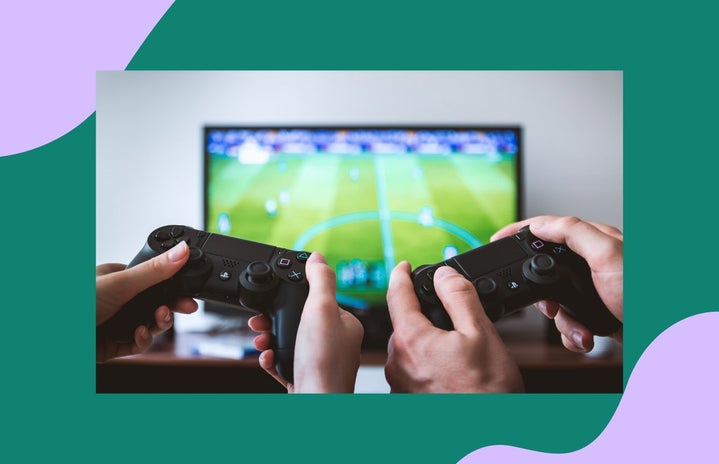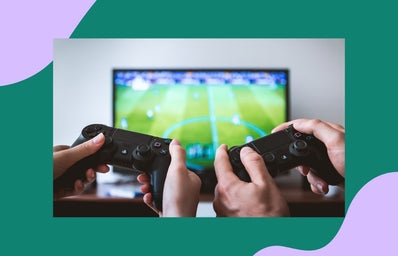I’m sure you’re familiar with the dating expression that “opposites attract.” Certainly, TV and books have made it seem like it’s a definitive basis for any relationship.The goody two-shoes swooning for the motorcycle-riding bad boy sound familiar?
But can two people who have basically nothing in common create a relationship that succeeds? One of the most common things I hear from friends going through a break-up, and something I’ve definitely told myself in the same situation, is that the relationship wouldn’t have lasted anyway given the lack of similar interests.
If you’re currently in a relationship with someone who has drastically different interests and goals, here are a few things to contemplate that’ll help determine whether you should make it work or part ways.
Opposites really do attract.
Chances are you didn’t become interested in your partner because they were your carbon copy. Instead, you probably saw something in them that fulfilled a gap in your life that had been missing before. One of the reasons my ex liked our relationship was because I traveled a lot; he liked hearing about all of the places I got to see and the passion I had for experiencing new things, while I liked how he could get me to enjoy being in the same place for more than a few days. It’s important to appreciate these differences you may have and respect them. Having different interests also provides the opportunity to learn from each other and try something you never would have thought of doing before.
Basically, having opposite personalities or interests can definitely make for a strong connection during the beginning stages of the relationship.
Carlee Nilphai is a recent graduate of Millersville University, and she and her boyfriend Zack have been dating for almost four years. While they have very different interests — Zack is a computer science guy who likes STEM and Kanye, while Carlee is an English major and a Swiftie — they have managed to make their relationship last. For Carlee, this is mostly due to the fact that they are able to appreciate and support each other’s interests.
“I’ve actually found that [the differences in our relationship] help me grow as a person and opens up my mind to try things I wouldn’t have thought of trying before,” Nilphai explains. For example, Nilphai’s boyfriend convinced her to try coding, something she ended up really liking. “I didn’t think it was something I would be into at all, but I now actually like to occasionally do it for fun.”
Overall, as long as you and your partner can appreciate and support your individual interests, there’s a good chance your relationship can succeed.

Related: How to Make the Relationship Work When Only One Person Likes to Party
Try exploring new things together.
If your interests diverge, you can try an activity neither of you has done before, because maybe you’ll find a new passion together! According to a study conducted at Stony Brook University, couples who spend time doing new and exciting things together were more satisfied with their relationships. Now, this doesn’t automatically mean you have to go out skydiving together, but if you have a free evening or weekend, get out and try something both of you are interested in but have never done before. Plan a date night at the local skating rink, or take a cooking class and recreate the dishes at home.
Work on compromise.
Besides creating new passions together, it’s important to be open and honest with your partner about your interests. After all, it’s perfectly healthy to have different interests from your partner; it’s what makes you an individual! That being said, communicate with your partner about your interests and explain why you are passionate about them. In the same vein, be open to hearing about your partner’s experiences. In addition, make sure to create time for your partner’s interests and make sure they make time for yours.
This is something Nilphai feels is really integral to keeping a relationship healthy and strong. “People with differing interests are great matches, as long as the other person can appreciate and support those interests,” she says. However, “if the other is constantly critical of the other’s interests, [the relationship] might not work out.”
Similarly, Samantha Barth, a junior at Connecticut College, believes differences don’t have to hinder a relationship as long as you are open to learning more about what your partner is interested in. For Samantha, this meant going to ComicCon, an event her boyfriend loved, but she hated. “Even though I wasn’t particularly excited to be there, it was cool to see him so happy and to see the kinds of things he liked,” Barth says. “Because we were together, it was a good memory.”
Shared interests can help you initially connect.
When talking about the differences you and your partner may have in a relationship, it’s also important to talk about the similarities. While opposites attract, you might also have first gotten to know your partner because you were both passionate about the same thing and that developed into something stronger. However, what’s important to realize is that a relationship must be built on a stronger foundation to last. Just because you like the same things doesn’t mean that you should stay in a broken relationship — common interests have nothing to do with compatibility. Too, those who have relationships with people who are drastically different shouldn’t feel like this means their relationship will never last.
Overall, it’s about the work you put into the relationship, not whether or not you like the same TV show.
Related: What To Do If You & Your SO Politically Disagree
Understand the distinction between having different interests and having different values.
As shown above, there are many ways to work around having different interests from your SO. It can be a lot harder to keep a relationship going, however, if you share different values. Interests are things that you are passionate about and enjoy doing, while values are personal principles and morals that guide your actions. One of the most common ways this may crop up in a relationship is if you and your partner have different political opinions.
For Lilah, a recent graduate of Northeastern University, the line needs to be drawn if you don’t feel comfortable discussing your opinions with your partner. She discovered this after learning that her ex had voted for Trump, but had avoided the subject for months after the 2016 election. “I don’t know if he was ashamed or afraid, but it made me realize that if we couldn’t discuss our differing viewpoints, our relationship lacked a mutual respect,” she explains.
While you can still have respect for your partner even if they don’t like your favorite food, it can be a lot harder if your values don’t align.
Appreciate that each relationship is different.
Finally, it’s crucial to understand that just because your friend’s relationship broke up because of a lack of similarities doesn’t mean that yours will as well. Each relationship is unique, and what’s important is that you and your partner communicate about your different interests and appreciate any differences you may have.
Differing interests doesn’t have to mean your relationship is doomed. Try to incorporate different things you and your partner are passionate about into your date nights and work on compromising, because your relationship will be much stronger for it. However, if you feel things aren’t quite matching up, check if your differences run deeper and examine the respect you are giving or are getting in the relationship. No matter what, the differences experienced in your relationship will help you grow.


